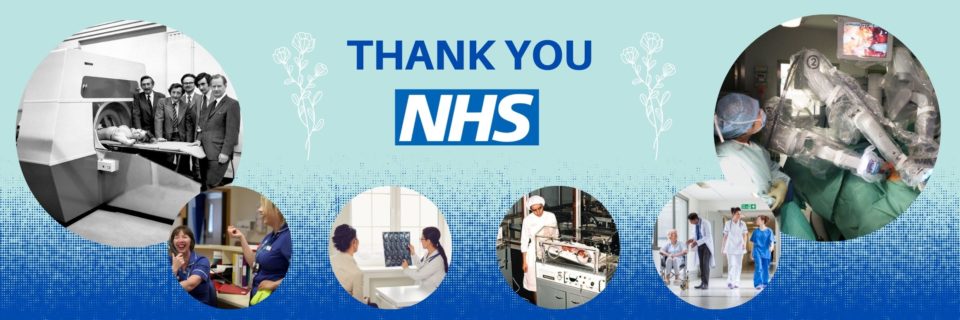1940s
The NHS was founded in Park Hospital on 5 July 1948, which was the first time the world had seen free healthcare being available based on citizenship instead of paying fees or insurance.
1950s
In the early 1950s, NHS mobile immunisation vans were used. Hospital services grew, which allowed medical staff to be more evenly distributed. This was also the decade where the first mass vaccination programme took place and everyone under the age of 15 was vaccinated against polio and diphtheria. The 1950s also saw the breakdown of barriers between the wider health system and mental health treatment, leading to the Mental Health Act.
1960s
The 1960s marked the UK’s first major heart and liver transplants. It was the era where the contraceptive pill came into the market, and the first full hip replacement was carried out. After successful fertility treatment, the 60s also saw a British woman give birth to sextuplets at Birmingham Maternity Hospital.
1970s
The 1970s saw the intensive care units becoming widely available, the birth of the world’s first test-tube baby and the very first CAT (computerised axial tomography) scan was introduced. The CAT scan was the way doctors could provide cross-sectional X-rays of patients’ bodies.
1980s
In the 1980s the first MRI scanner was installed at Brompton Hospital in London for cardiovascular research. NHS breast and cervical cancer screenings were introduced, and Britain’s youngest liver transplant patient had a successful surgery. The Mental Health Act (1983) also introduced the issue of consent in mental health treatment and set out when people can be detained, or “sectioned”.
1990s
By the end of the 1990s, the Organ Donor Register was created, and the NHS Trusts were set up. NHS Direct had also begun the non-emergency telephone service which continued to be rolled out across the UK in the early 2000s.
2000s
The first decade of the 21st century saw the NHS introduce walking centres, the NHS Choices website launch and the first successful gene therapy at Great Ormond Street in London. Robotic arms were also introduced, which allowed patients to be treated for fast or irregular heartbeats during operations.
2010s
The NHS from 2010 up until today has grown from strength to strength, with health professionals continuing to go above and beyond to improve the nations much-loved institution.
The London Olympic Games paid tribute to the NHS during their opening ceremony in 2012, and in that same year the NHS saw the first successful hand transplant.
2020s
After over seven decades of the NHS, the UK has continued to benefit from the healthcare services provided and have seen the NHS work extremely hard during a global pandemic.
Hospitals have cared for around 400,000 seriously ill COVID-19 patients, including more than 100,000 admitted in January 2021 alone, along with millions more.
The NHS has also rolled out the biggest vaccination programme in health service history, the fastest in Europe and more precisely – the world.
Thank you to the NHS
The PDA represents pharmacists and the profession have been proud to be part of the NHS throughout its history. We would like to say a huge thank you for the amazing work of the NHS and all the other healthcare professionals who also go the extra mile to put the needs of patients first.
The PDA supports campaigns to keep NHS services free at the point of delivery and based on clinical need, not the ability to pay. For example, the PDA is a proud member of the Prescription Charges Coalition.
Learn more
Related links
- Celebrating 70 years of the NHS
- The NHS at 70: A timeline in pictures
- 70 years of the NHS
- NHS Anniversary: protest for patient safety, pay justice and an end to privatisation!
- The NHS Constitution for England
- Prescription Charges Coalition
Not yet a PDA member?
If you have not yet joined the PDA, we encourage you to join today and ask your colleagues to do the same.
Membership is FREE to pharmacy students, pre-regs and for the first three months of being newly qualified.
